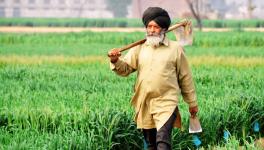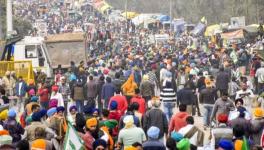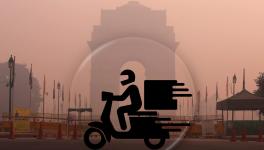It Will Take 4-5 Years to Properly Resolve Stubble Burning Issue: Punjab Pollution Control Body

Image Courtesy: Wikimedia Commons
New Delhi: Crop diversification is not a long-term solution to the problem of stubble burning and it will take four to five years to properly resolve the issue, a senior official of the Punjab Pollution Control Board (PPCB) has said.
Crop diversification and using short duration varieties of paddy are among several initiatives proposed by the Centre and experts to resolve the stubble burning issue in Punjab and Haryana.
At a workshop organised by the Delhi-based Climate Trends in Chandigarh on Monday, PPCB Member Secretary Krunesh Garg said counting the number of farm fires is an inaccurate measure of ascertaining the scale of stubble burning and that the acreage of land being put on fire is the parameter to be measured.
"It is not that the problem is not being addressed, we are mapping it down to the block and village level, but it will take four-five years for proper resolution," Garg said.
The area under paddy cultivation in Punjab has increased from 29.61 lakh hectares in last year to 31.13 lakh hectares this year.
This would result in the generation of 19.76 million tonne of paddy straw this year as compared to 18.74 MT last year.
Crop diversification is not a long-term solution because it does not mean that biomass will not be produced by other crops. It will just be another kind of biomass waste, like cotton sticks, mustard straw waste etc.
"Issues with respect to (stubble) burning will always remain. So, we need to find solutions, both in situ and ex-situ. A combination of these can only be effective, Garg said.
Dr Adarsh Pal Vig, Chairman, Punjab Pollution Control Board said: "It is a social and a psychological problem where behaviour and attitude of farmers also needs to be addressed."
He said urbanisation and the exploding population in cities are causing a problem. Due to such factors, big cities like Delhi are already sitting on a tipping point and stubble becomes the last straw every season.
A prolonged spell of rains in September end delayed paddy harvesting and subsequent farm fires in some regions of Punjab and Haryana.
Another weather system is predicted to bring rain in parts of north India between October 4 and October 8, which could further delay harvesting in some areas, forecasters said.
Experts say farmers are more likely to burn stubble to make up for the lost time and quickly prepare their fields for the next crop.
Stubble burning begins around September 20 but the number of fire events remains low till October 12-14.
The rains in September end suppressed farm fires in Punjab and Haryana and kept air pollution in check in Delhi-NCR, said Vinay Sehgal, principal scientist at the IARI.
If it rains next week, farm fires will shift toward mid-October, increasing their number in that period and compounding the impact, Sehgal said.
Along with unfavourable meteorological conditions, paddy straw burning in Punjab and Haryana is a major reason behind the alarming spike in air pollution levels in the national capital in October and November.
Farmers set their fields on fire to quickly clear off the crop residue before cultivating wheat and potato.
According to the Indian Agricultural Research Institute, Punjab had reported 71,304 farm fires between September 15 and November 30 last year and 83,002 farm fires in the corresponding period in 2020.
Last year, the share of farm fires in Delhi's PM 2.5 pollution had peaked to 48% on November 7.
Get the latest reports & analysis with people's perspective on Protests, movements & deep analytical videos, discussions of the current affairs in your Telegram app. Subscribe to NewsClick's Telegram channel & get Real-Time updates on stories, as they get published on our website.























